Mark Perry can relate to people struggling with addiction, depression and homelessness. He’s been there.
After 30 years of addiction to alcohol and drugs, the 46-year-old is approaching five years of sobriety. And now he is trying to help other addicts get their lives back together through a peer coaching initiative at Amistad, a Portland nonprofit that helps people struggling with substance abuse, homelessness or mental health issues.
“I’ve been through it,” Perry says. “I can look them in the eye and say, ‘I know what you’re thinking and you’re (expletive) wrong.’ ”
Amistad is just one of the social service agencies around Portland and the state that rely on a flow of federal funding known as Community Development Block Grants. The federal funds reach virtually every corner of the state and support a wide range of local initiatives, from housing construction and rehab to street and sidewalk improvements to new business development.
Now, however, the funding stream may come to end.
President Trump wants to eliminate the program, which was created by President Gerald Ford in 1974 as a way to enable communities to help low- to moderate-income residents and neighborhoods.
The president’s proposal, now in the hands of Congress, says the grant program “is not well-targeted to the poorest populations and has not demonstrated results.” It also says community and economic development activities are better left to local and state governments.
Critics of the community block grants say the program is an example of excessive federal spending and lack of accountability for how the money ultimately gets spent.
But Amistad’s executive director, Brian Townsend, is among those worried about what will happen if it goes away.
Amistad received about $50,000 in CDBG funding this year, which he said is a small but important component of the nonprofit’s $1 million budget. “This pot of money looks small,” Townsend said, “but if we had lost it, the (peer coaching) program would have closed.”
DOZENS OF ELIGIBLE ACTIVITIES
During its first 40 years, the federal CDBG program has sent $144 billion to thousands of urban and rural communities nationwide, according to the U.S. Department Housing and Urban Development, which oversees the program.
Projects must meet a national objective of either benefiting low- to moderate-income people, aiding in the prevention and elimination of so-called slums or blight, or meeting an urgent need that poses a serious and immediate threat to the health and welfare of the community.
There are 28 eligible activities for which CDBG funds can be used, including infrastructure projects such as sewer, drinking water or safe streets, economic development, code enforcement, housing rehabilitation and social services.
In 2014, the most recent year for which data is available, HUD distributed more than $3 billion in CDBG funding, which has been used to improve blighted neighborhoods and bolster social service agencies. The money is distributed to states, counties and municipalities through a formula based on population, poverty and other housing variables.
More than $16 million a year flows into Maine communities in community block grants. From 1982 to 2016, Maine received more than $500 million in CDBG money, according to the Maine Office of Community Development.
Maine Republican Party Executive Director Jason Savage said Congress needs to scrutinize all forms of government spending, including CDBG.
“The sad truth about our current situation is that the federal government has been on a decade-long shopping spree and we currently face a $20 trillion national debt. The Community Development Block Grant proposal is one of many programs that needs to be looked at,” Savage said in an email. “Some CDBG grants appear to be spent well, while others appear to be questionable. Should we be adding to a national debt that our children will have to pay off with interest, to plant trees for some communities or to improve the appearance of building facades for private businesses in others?”
On Wednesday, the U.S. Conference of Mayors issued a statement vowing to fight Trump’s proposal and calling the block grants an effective, bipartisan program.
“Simply put, this proposal to eliminate CDBG funds would make our cities and communities less safe, less healthy and more expensive to live in,” Setti Warren, mayor of Newton, Massachusetts, said in a written statement. “At a time when cities are continuing to struggle to make ends meet, these funds are critical and cutting them would be a disaster.”
Aaron Shapiro, Cumberland County’s community development director, distributes about $1.5 million in CDBG funding across the county each year for projects that can include housing rehabilitation, social services and public infrastructure improvements, such as sewer lines that serve Habitat for Humanity housing projects in Scarborough and Freeport. The grants amount to a small percentage of local government spending – and the funding does not go as far as it did decades ago because of cutbacks and inflation – but it would be missed, said Shapiro, who has worked with CDBG funding for more than three decades.
“It’s a small number, but it does something good,” Shapiro said. “These things have always been a target (for budget cutting). This is probably the biggest threat to funding that it’s faced.”
South Portland has received $4.7 million in CDBG funds in the past decade for various projects, such as housing, infrastructure and economic development.
“Given the challenges facing cities across the country today, CDBG funds are vitally needed,” said Tex Haeuser, who has been South Portland’s planning director for 27 years.
Biddeford received about $4.4 million in the past decade for projects ranging from a micro-enterprise loan program to downtown sidewalk improvements to a career center in a low-income neighborhood.
“We could never do these things if were just using … our local money,” said Mayor Alan Casavant. “When you look at all the different areas where these funds are utilized, you realize it touches a lot of people and improves the quality of life.”
SPENDING CONTROL AT LOCAL LEVEL
Portland is Maine’s largest single recipient and receives about $1.8 million a year. From 1975 to 2014, Portland received more than $100 million in CDBG money.
Part of the funding received by Portland, $150,000 a year, pays for the city’s community policing program.
And every year in Portland, a long list of social service agencies that operate soup kitchens, homeless shelters, health clinics, day care for low-income parents, programs for at-risk youth and services to immigrants or the blind, submit applications and compete for a steadily shrinking allocation of funding.
“It’s a competitive process for people who don’t compete,” said Townsend, Amistad’s director.
Portland received nearly $3.9 million in CDBG requests this year, more than twice the city’s total CDBG allocation.
“It empowers localities, rather than the federal government, to support programs that foster local investment, create jobs, prepare people for gainful employment and spur economic development,” Portland Mayor Ethan Strimling said in a written statement. “The fact that the president is looking to cut the program flies in the face of his longstanding logic that local control and autonomy leads to the best ultimate use of funds and resources.”
CDBG funds also help nonprofit agencies leverage other sources of funding. For the fiscal years of 2010-2012, recipients reported that every dollar of CDBG funds leveraged an additional $4.07 of other funds, according to HUD.
Mark Swann, executive director of the Portland-based social service agency Preble Street, said block grant funding is a critically important piece of a “jigsaw puzzle” of revenue sources that allow the nonprofit to maintain its shelters, soup kitchen and other services.
This year, Preble Street was granted about $155,000 in CDBG funds for its day shelter, women’s shelter, teen shelter and food program. The agency has a $10.7 million budget.
“Every funding source wants to see, or actually requires, that their money is matched or supplemented in some manner with other funds,” Swann said. “We always promote our CDBG funding when applying for other funds. No funder wants to be the only one in.”
The loss of federal funding would hasten the deterioration of Maine’s social safety net, which has already been frayed with the closure of six nonprofits and seven shelters in the past 12 years or so, Swann said.
CITY RESCUES AMISTAD PROGRAM
Amistad, the nonprofit that helps people with mental illness and substance abuse, almost did not receive any block grant funding during this year’s competitive CDBG allocation process in Portland, which is decided by scoring detailed applications.
The group had requested $60,000 for its peer coaching initiative, which helps prevent people in crisis from going to the emergency departments of local hospitals, and another $35,000 to keep its Peer Support and Recovery Center at 66 State St. open on Saturdays.
But when Amistad was left out and the peer coaching program was jeopardized, Portland City Manager Jon Jennings diverted nearly $52,000 from the grants to other social service agencies. Jennings cited the opioid addiction epidemic and Amistad’s ability to reach people who don’t engage the public health system as justification for the funding.
“The Amistad Peer Coaching Initiative was a CDBG-funded pilot program in 2014 and has shown tremendous success at collaborating with our shelters and hospitals to serve the members of our community who have severe and persistent mental illness along with substance use issues and homelessness,” Jennings said in his March 10 memo to city councilors. “From a social service and a budgetary standpoint, cutting funds to a program like this is just not a decision l am willing to make.”
But funding for Amistad’s Peer Support and Recovery Center was not available, meaning the drop-in will likely close on Saturdays. The center serves about 120 people a day, said Townsend, the executive director.
For people like Will Frost, losing the center – even for a day – will be difficult, since it’s a place where they can get two meals a day, escape the stress of an overcrowded homeless shelter system and talk with someone who has been through similar experiences.
“This place is what I consider a lifesaver,” said the 54-year-old Frost, who has been visiting the center for about 30 years. “Basically, this is a house for people who live on the streets. It’s fed me. It’s kept me clean, and most of the time, it’s kept me sober.”
Kelley Bouchard and Gillian Graham contributed to this report.
Randy Billings can be contacted at 791-6346 or at:
Send questions/comments to the editors.


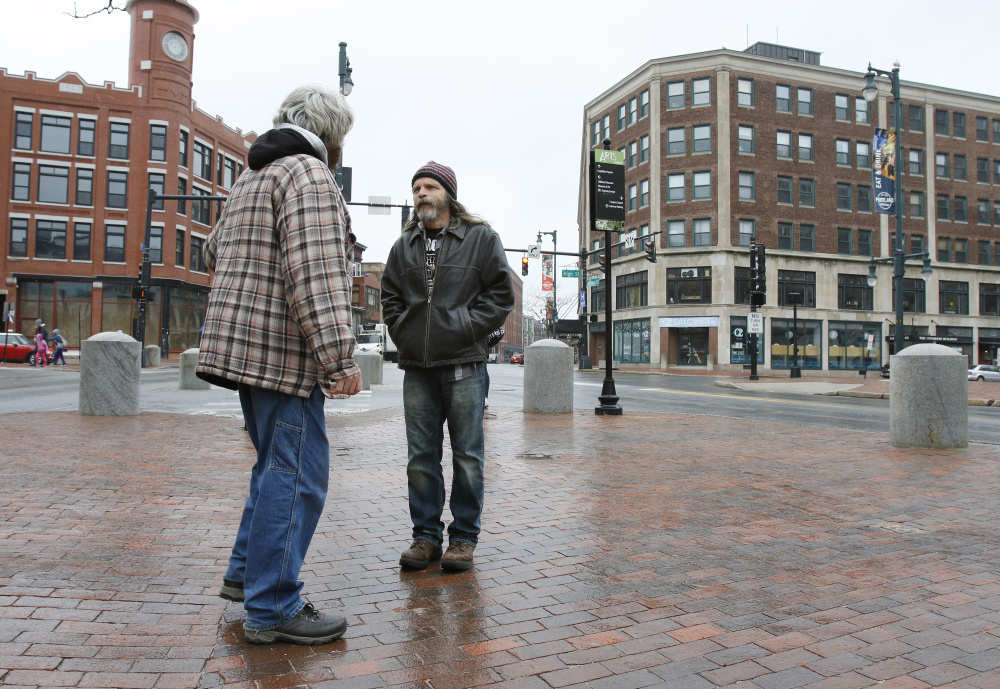
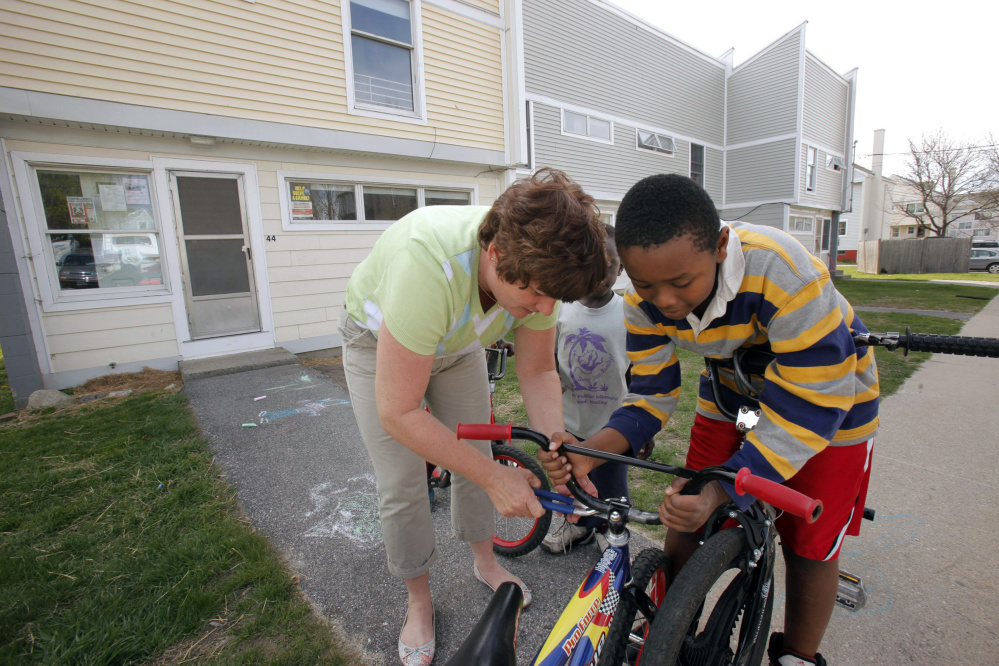
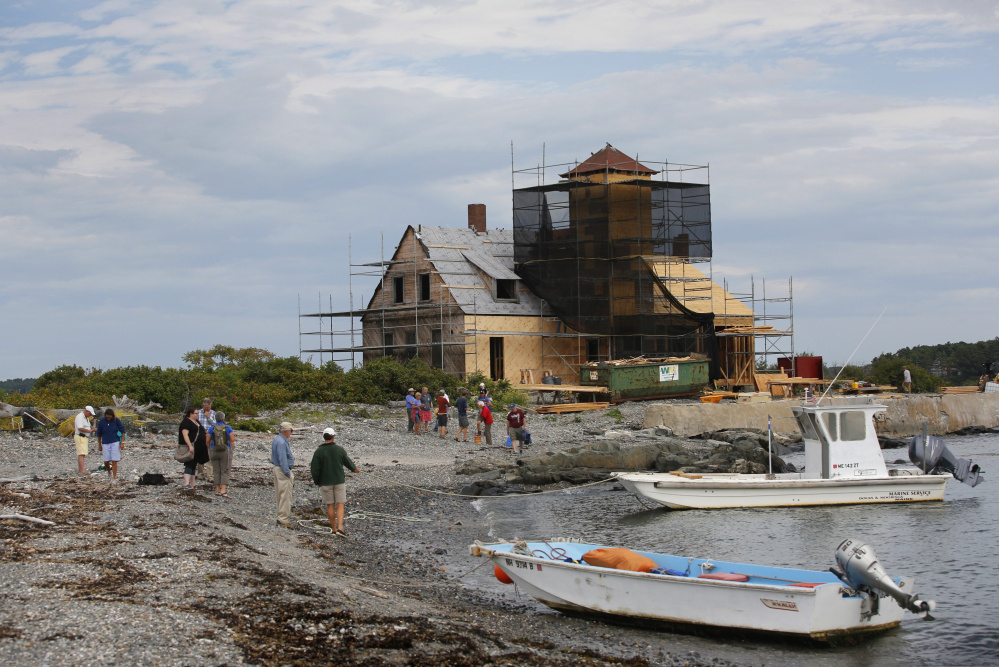
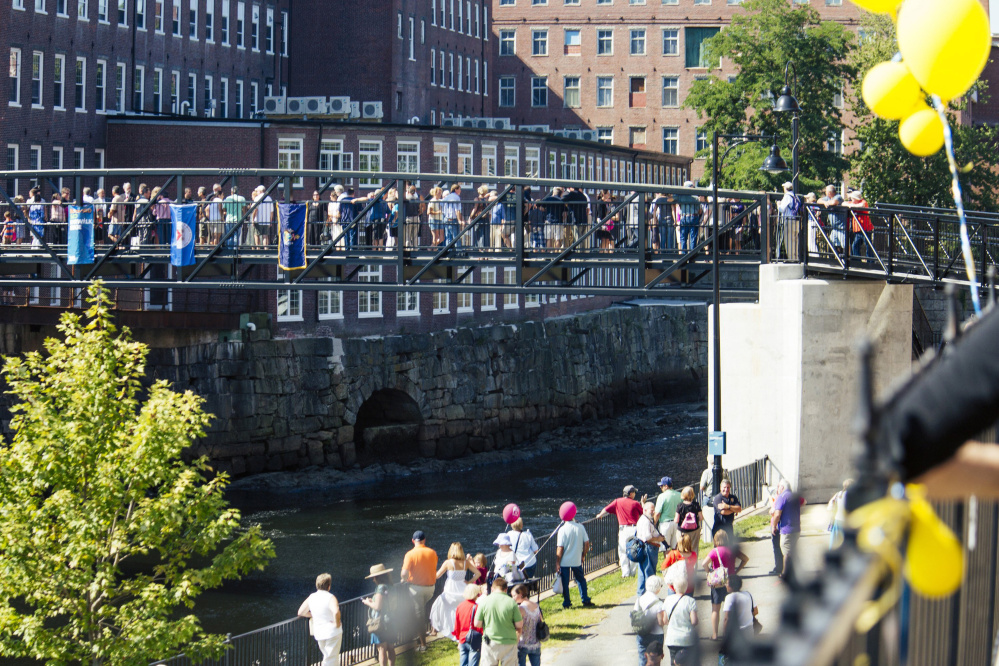
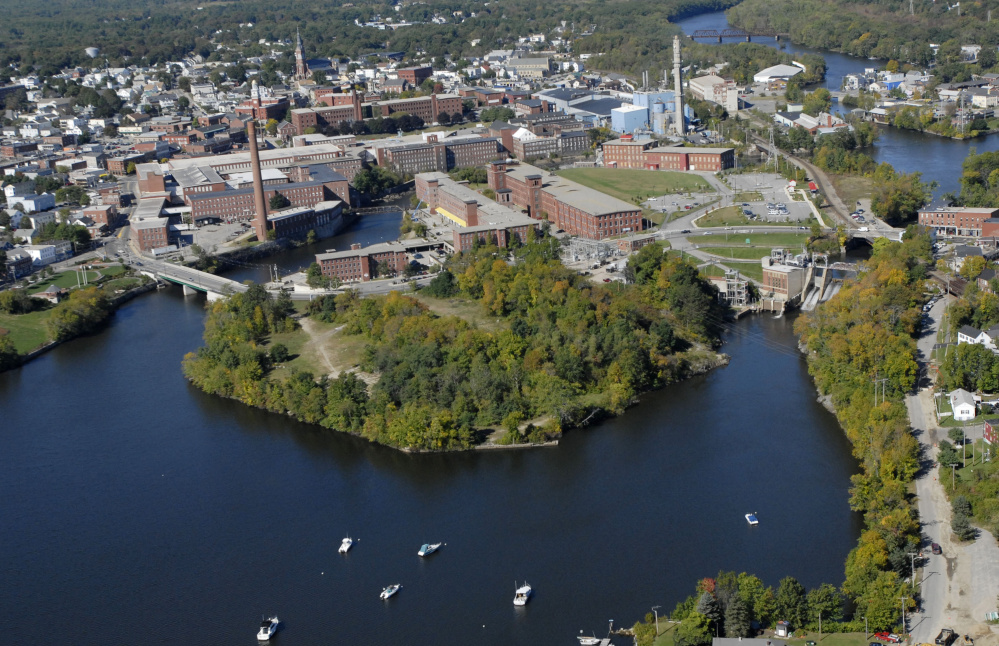

Success. Please wait for the page to reload. If the page does not reload within 5 seconds, please refresh the page.
Enter your email and password to access comments.
Hi, to comment on stories you must . This profile is in addition to your subscription and website login.
Already have a commenting profile? .
Invalid username/password.
Please check your email to confirm and complete your registration.
Only subscribers are eligible to post comments. Please subscribe or login first for digital access. Here’s why.
Use the form below to reset your password. When you've submitted your account email, we will send an email with a reset code.